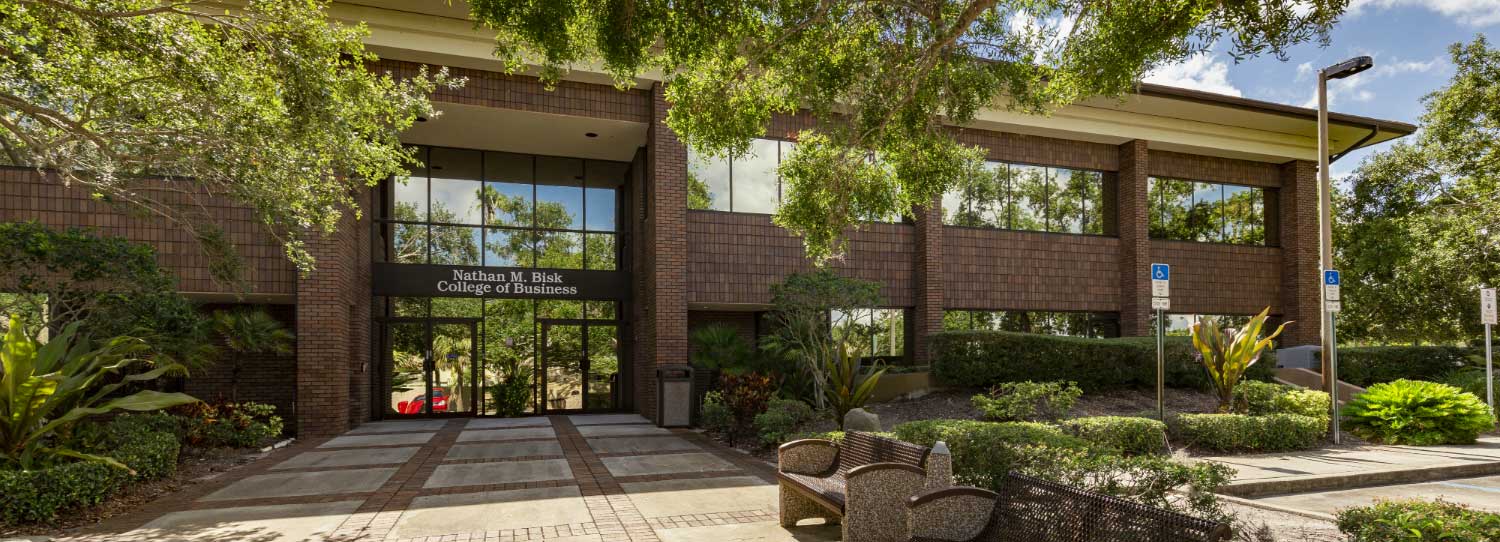MBA PM Program Information
This information is related to Project Management Institute (PMI) programmatic accreditation of the MBA with concentration in Project Management.
Mission Statement
The mission for the MBA in Project Management program at Florida Institute of Technology is to develop graduates that possess technical proficiency in project management along with strong leadership skills and strategic vision that will lead to successful projects.
The MBA in Project Management at the Nathan M. Bisk College of Business is designed to provide a well-rounded, high quality educational experience to prepare graduates for a variety of careers in the project management in a global business environment.
In support of the MBA degree in Project Management, the college:
- provides foundational knowledge in all areas of business and exposes students to leadership challenges combined with project management strategy and decision making
- continuously improves curricula, maintained to industry and PMI standards, and responsive to a rapidly changing global workforce
- fosters intellectual growth and skills needed to manage complex projects in a rapidly evolving environment
- serves society through courses and content that target the needs of working professionals and traditional college students, encouraging a culturally diverse student experience; and
- builds effective partnerships with university stakeholders to further program excellence and lifelong learning.
Potential Students
Applicants for the Master of Business Administration in Project Management must have a bachelor’s degree; however, the degree need not be in business administration. Applicants who are graduates of non-business programs are also encouraged to apply. The admissions decision is based on a review of the application documentation including work experience, academic performance, references and written statement of purpose. Although taking the Graduate Management Admissions Test (GMAT) is not a requirement, it is highly recommended for admission consideration. Individuals who take the GMAT and obtain a satisfactory score can compensate for other criteria in their application (such as academic performance or work experience). Preference for graduate scholarships will be given to applicants who take the GMAT.
For more admission information, please see Graduate Admission Requirements.
Tuition and Fees
The online MBA PM Program is 36 credit hours with tuition and fees as published on the tuition and fees page.
Student Performance Criteria
| Year | Students Beginning Enrollment (all semesters/terms; includes re-entries & new starts) | Students with Degrees Conferred (all semesters/terms) | Students Continuing Enrollment at End of Year (all semesters/terms) | Students who Withdrew by Year (all semesters/terms) |
|---|---|---|---|---|
| 2022 | 118 | 35 | 101 | 7 |
| 2021 | 118 | 41 | 78 | 9 |
| 2020 | 112 | 51 | 89 | 4 |
| 2019 | 107 | 47 | 88 | 4 |
| 2018 | 168 | 57 | 85 | 4 |
The university establishes a full-year cohort for online students, which consists of all new, and fully admitted, students within an academic year. A student is considered retained if they reenroll in any term, or graduate, within 12 months of their initial enrollment term. For instance, the '2021' retention rate is the number of new, fully admitted entrants from each term in the 2020-2021 academic year who reenrolled at least once or graduated within twelve months of entry.
| Year | Retention Rate |
|---|---|
| 2022 | 73% |
| 2021 | 71% |
| 2020 | 75% |
| 2019 | 80% |
| 2018 | 79% |
The graduation rates listed are two-year graduation rates for each respective full-year cohort. For instance, the '2020' graduation rate is the number of new, fully admitted entrants from each term in the 2019-2020 academic year who graduated within two years of entry.
| Year | Graduation Rate |
|---|---|
| 2021 | 53% |
| 2020 | 50% |
| 2019 | 46% |
| 2018 | 36% |
| 2017 | 42% |
| Year | Employment Rate |
|---|---|
| 2021 | 97% |
| 2020 | 92% |
| 2019 | 92% |
| 2018 | 93% |
| 2017 | 95% |
| Year | Degrees Conferred (graduates) | Number of students registered |
|---|---|---|
| 2022 | 35 | 118 |
| 2021 | 41 | 150 |
| 2020 | 51 | 170 |
| 2019 | 47 | 185 |
| 2018 | 57 | 200 |


 Give to Florida Tech
Give to Florida Tech 